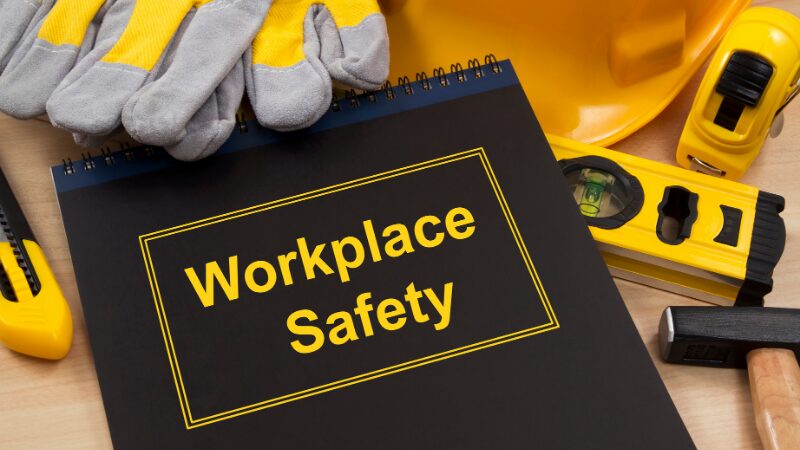Understanding the Role of an Electrician
A proficient electrician, well-versed in the intricacies of electrical systems, dedicates expertise to the setup, upkeep, and restoration of such systems. Their pivotal role revolves around guaranteeing the safety and dependability of electrical systems in buildings, residences, and diverse facilities. Engaging with an array of equipment, including wires, switches, and circuit breakers, electricians meticulously ensure the efficient distribution and utilization of electricity
Exploring the Benefits of Becoming an Electrician
Becoming an electrician offers a lot of benefits. Primarily, it stands as a sought-after profession, offering abundant job prospects and enduring job stability. Additionally, electricians often enjoy competitive salaries and ample opportunities for professional growth. Moreover, electricians have the satisfaction of helping others by providing essential electrical services to homes, businesses, and communities.
Common Myths about Electricians
There are some misconceptions surrounding the field of electrical work that need debunking. A prevalent misconception revolves around the belief that becoming an electrician demands years of formal education. While education holds significance, alternative routes, such as apprenticeships, serve as viable paths for acquiring the essential skills and knowledge needed for success in the field.
Building a Strong Foundation

Assessing and Developing Essential Skills for Electricians
Acquiring Basic Math and Science Knowledge
A strong foundation in mathematics and science is integral to excelling in the realm of electrical work. Being an electrician requires a solid understanding of math, including algebra and geometry, for accurately measuring electrical quantities and calculating voltage, resistance, and current. Additionally, a good grasp of physics and electrical principles is crucial to comprehend the theories and principles underlying electrical systems. These foundational skills are vital for ensuring precision and a deep understanding of the intricacies of the field.
Building Strong Problem Solving and Thinking Skills
Problem solving is an essential skill for electricians, as they often encounter complex electrical issues that require analytical thinking. Being able to analyze blueprints, diagnose problems, and develop effective solutions is crucial to excel in this field. Furthermore, critical thinking skills are necessary for identifying potential risks, ensuring safety, and selecting the most efficient electrical solutions for different scenarios.
Developing Manual Dexterity and Attention to Detail
The work of an electrician involves intricate tasks that require manual dexterity and attention to detail. From handling small wires and components to installing precise connections, electricians need steady hands and keen eyesight to ensure accurate and reliable electrical installations. Meticulous attention to detail is also vital when interpreting electrical diagrams and following complex wiring plans.
Exploring Different Types of Electricians and Specializations
Residential Electricians
Residential electricians primarily focus on electrical installations, repairs, and maintenance in residential settings. These skilled professionals work on various aspects of residential electrical systems, including wiring homes, installing lighting fixtures, and ensuring proper grounding. They also troubleshoot electrical issues and provide solutions to enhance electrical efficiency in homes.
Commercial Electricians
Commercial electricians specialize in electrical work for businesses, offices, and commercial buildings. Navigating intricate electrical systems found in corporate offices, shopping malls, and hospitals is the expertise of commercial electricians. Proficient in executing electrical installations, maintenance, and repairs on a larger scale, these professionals often collaborate closely with other experts, including architects and engineers, to ensure seamless integration within expansive commercial settings.
Industrial Electricians
Operating within industrial settings like factories, power plants, and manufacturing facilities, industrial electricians shoulder the responsibility of maintaining, repairing, and installing electrical equipment and systems specifically tailored to the demands of industrial environments. These complex systems often involve high-voltage machinery, motor controls, and programmable logic controllers (PLCs).
Understanding Educational Requirements and Options
High School Diploma or Equivalent
Although a high school diploma or its equivalent typically serves as the baseline requirement for entering the electrician profession, it serves as a sturdy foundation for subsequent education and training. Coursework in mathematics, physics, and electronics during high school can prove particularly advantageous in laying the groundwork for a successful career in electrical work.
Attending Vocational or Technical Schools
Attending vocational or technical schools offers specialized training in electrical work and can enhance job prospects. These schools provide hands-on training and theoretical knowledge in electrical systems, codes, and safety practices. Some vocational programs also offer certification or associate degree options, which can further enhance one’s qualifications.
Pursuing Apprenticeships for On the Job Training
Apprenticeships emerge as a popular choice for aspiring electricians, offering invaluable hands-on training and on the job experience. These programs seamlessly blend classroom instruction with practical, supervised work, providing a comprehensive learning experience guided by seasoned electricians. Apprenticeships vary in duration but often range from three to five years, ensuring a comprehensive understanding of electrical systems and industry practices.
Navigating the Path to Becoming an Electrician

Exploring Licensing and Certification Examinations
Understanding the Importance of Licensing
Acquiring a license not only signifies a dedication to professionalism but also underscores adherence to stringent electrical codes and regulations.
Examining Different Levels of Electrician Licenses
Electrical licensing often encompasses multiple levels, ranging from apprentice or journeyman licenses to master electrician licenses. Each level has its own requirements and indicates the electrician’s level of expertise and experience. Advancement to higher levels typically requires accumulating a certain number of work hours and passing specific exams.
Preparing for Licensing Examinations
Licensing examinations typically assess the applicant’s knowledge of electrical codes, safety practices, and electrical theory. To prepare for these exams, aspiring electricians often utilize study materials, practice exams, and review courses. It is important to dedicate time and effort to study, ensuring a solid understanding of the subject matter and increasing the chances of passing the examinations.
Joining Apprenticeship Programs
Researching and Identifying Suitable Apprenticeship Opportunities
Before you jump into an apprenticeship, take the time to explore and discover well-regarded programs. Seek out those with a strong reputation for offering top-notch training, mentorship from seasoned professionals, and chances for both personal and professional development. Opting for a program with a proven history lays the foundation for an enriching learning journey and a successful beginning to your career in the field. To gather information about apprenticeships in your area, consider reaching out to local trade organizations, unions, or electrical contractors. They can provide valuable insights into available opportunities and guide you toward a successful career path in the electrical industry.
Application and Selection Process for Apprenticeships
The application process for an apprenticeship generally entails submitting a comprehensive application, which may include a resume, academic transcripts, and letters of recommendation. In certain instances, programs may incorporate interviews or aptitude tests into the selection process to assess candidates thoroughly. It’s advisable to be well-prepared and present a strong application package to increase your chances of securing an apprenticeship in the electrical field. It is important to put forth a strong application that highlights relevant skills, experiences, and enthusiasm for the field.
Learning and Gaining Experience through Apprenticeship Training
During the apprenticeship period, aspiring electricians have the invaluable opportunity to learn from seasoned professionals and acquire hands-on experience. Working under the guidance of experienced mentors, apprentices actively participate in various electrical tasks, including wiring installations, equipment maintenance, and troubleshooting. This practical exposure enhances their skills and understanding of the intricacies of the electrical trade. This period allows apprentices to acquire practical skills and knowledge while gradually taking on more responsibilities.
Acquiring Practical Experience and On the Job Training
Understanding the Value of On-Site Experience
On-site experience is essential for becoming a competent electrician. It provides exposure to real-world scenarios, challenging electrical issues, and diverse projects. Working directly with electrical systems and equipment helps develop problem-solving abilities, enhances technical knowledge, and instills the importance of safety protocols and industry best practices.
Developing Skills in Wiring, Circuitry, and Repair Work
Wiring, circuitry, and repair work are core skills for electricians. Through practical experience, electricians learn how to accurately install and connect electrical components, interpret blueprints, and troubleshoot faulty systems. This hands-on training sharpens their ability to identify issues, apply appropriate repair techniques, and ensure electrical systems meet required standards.
Building Relationships and Networking with Experienced Electricians
Establishing relationships with experienced electricians is invaluable for professional growth and development. Mentors can provide guidance, share industry insights, and offer advice based on their wealth of experience. Networking within the electrical community facilitates the exchange of knowledge, job opportunities, and valuable connections that can open doors to new career prospects.
Ensuring Safety and Compliance

Emphasizing Electrical Safety Practices
Adhering to Electrical Codes and Regulations
Electrical codes and regulations exist to ensure safety and prevent hazards. Electricians must acquaint themselves with industry standards and adhere to them diligently when engaged in designing, installing, or repairing electrical systems. Staying current with code changes and implementing best practices is paramount, as it not only minimizes the risk of electrical accidents but also ensures compliance with legal requirements. This commitment to standards contributes to a safer working environment and the overall integrity of electrical systems.
Using Proper Protective Equipment and Tools
Electrical work involves inherent risks, and electricians must prioritize safety by wearing appropriate protective equipment, such as gloves, goggles, and helmets. Additionally, using specialized tools designed for electrical work helps prevent injuries and ensures accurate and efficient completion of tasks. Regular inspection and maintenance of tools is necessary to ensure they remain in good working condition.
Implementing Safe Working Practices to Prevent Accidents
Creating a safe working environment is crucial for electricians. They should be vigilant about potential hazards, such as exposed wires, faulty equipment, or overloaded circuits. Practicing proper lockout-tagout procedures, verifying power sources, and conducting thorough risk assessments before starting any job are essential safety practices. Additionally, promoting safe work habits, such as maintaining a clean and organized workspace, reduces the likelihood of accidents.
Identifying Potential Hazards and Troubleshooting Techniques
Recognizing Electrical Risks and Dangers
Effective hazard recognition is paramount in maintaining a safe work environment. Electricians must be able to identify potential electrical risks, such as electrical shock, arc flashes, or electrical fires. They should assess their surroundings for any hazardous conditions, faulty equipment, or improper wiring that may pose a threat to safety. Being aware of these risks allows electricians to take proactive measures to mitigate potential dangers.
Troubleshooting Electrical Problems and Faulty Systems
Troubleshooting skills are crucial for electricians to diagnose and rectify electrical problems. They must be adept at using electrical diagnostic tools, reading electrical diagrams, and analyzing circuitry to identify faults. Through experience and training, electricians develop a systematic approach to troubleshooting, enabling them to efficiently locate and repair issues within electrical systems.
Handling Emergencies and Electrical Malfunctions Safely
An electrician’s ability to handle emergencies safely sets them apart as professionals. From power outages to electrical malfunctions, electricians must remain calm and follow proper protocols to neutralize hazardous situations. They should have well-practiced emergency response procedures, including knowledge of cutting off power sources and performing CPR. Being prepared for emergencies helps minimize risks and protects both themselves and others.
Staying Updated with Industry Trends and Technological Advancements
Keeping Abreast of Changes in Electrical Codes and Standards
Electrical codes and standards evolve over time as new technologies emerge and safety requirements are updated. Electricians must stay informed about these changes to ensure ongoing compliance. Regularly attending industry seminars, training sessions, and workshops helps electricians stay up to date with the latest advancements and shifts in electrical regulations.
Embracing New Technologies in the Electrical Field
Advancements in technology are revolutionizing the electrical field. From energy-efficient solutions to smart home automation, electricians must embrace new technological developments and adapt their skills accordingly. By staying informed about emerging technologies, such as solar panels or electric vehicle charging stations, electricians can position themselves as specialists in these innovative areas.
Continuously Learning and Expanding Knowledge Through Continuing Education
Continuing education is essential for electricians to stay competitive and remain at the forefront of industry trends. Electricians can pursue additional certifications, attend specialized workshops, or enroll in advanced courses to enhance their knowledge and skills. Engaging in continuous learning ensures that electricians are capable of handling increasingly complex electrical systems and fulfilling the evolving demands of the industry.
Commonly Asked Questions
How long does it take to become a certified electrician?
The duration to achieve certification as an electrician varies based on the chosen educational route. Becoming a certified electrician usually takes four to five years through an apprenticeship, combining classroom learning with on-the-job training. Alternatively, vocational or technical school programs offer faster paths, ranging from several months to a year, leading to a certification or associate degree.
Are there any gender biases in the electrical industry?
The electrical industry used to be mostly men, but things are changing. More women are now choosing electrical careers. Organizations are working to get rid of gender biases and make sure everyone has equal chances in the field.



